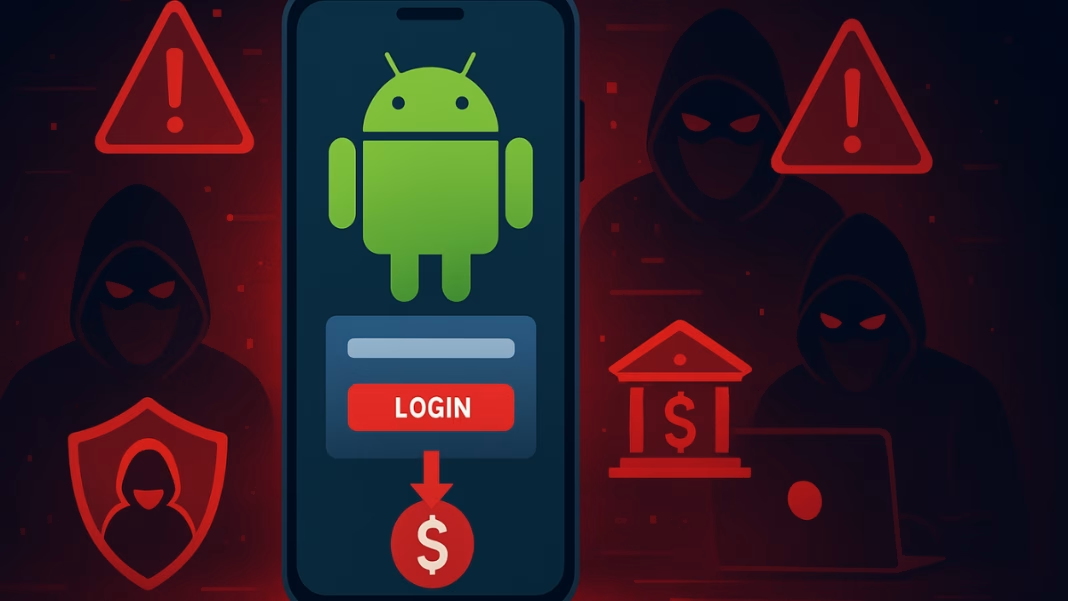A new wave of dangerous malware is targeting Android phone users in India. This attack is disguised as real banking applications but is actually designed to steal money and personal data. Security researchers discovered the campaign in late July and warned that it is highly advanced and dangerous.
Malware Campaign Disguised as Banking Apps
The fake apps are made to look like real ones that people use for online banking. They copy the design and features so closely that most people cannot tell the difference. This makes it easy for the malware to trick users into installing it on their phones.
Once installed, the malware can completely take over the device. It can read personal information, watch what the user is doing, and even send or receive messages. It is also capable of carrying out money transfers without the phone owner’s knowledge.
With the rising use of mobile banking in India, millions of people could be at risk if they fall for these fake apps. Even though the report does not mention the names of the banks being targeted, experts say the threat is real for anyone using mobile banking on Android phones.
How the Attack Works
The attack starts when users receive a message on WhatsApp, SMS, or email. The message may contain a link to download an app or a QR code to scan. These apps come in APK file format, which can be installed manually on an Android phone.
The messages are designed to look like they are from trusted sources. They might say the app is a system update or an official banking app. Some attackers also use fake app stores that look like the Google Play Store to make the download look safe.
How Cyber Attacks on Industrial Control Systems Can Endanger Lives ?
When the user installs the fake app, it asks for a wide range of permissions. These permissions allow the malware to read text messages, send messages, and access phone calls. This gives it the ability to read one-time passwords (OTPs) sent by banks for transactions.
The malware does not stop there. It bypasses Android’s battery-saving settings so it can keep running in the background. Even if the phone is restarted, the malware stays active. It can also hide or change notifications so the victim does not see any alerts from the bank or the phone company.
All the information collected—such as passwords, tokens, and OTPs—is sent to a database controlled by the hackers. This gives them full access to the victim’s bank account and other sensitive accounts linked to the phone.
Why This Malware Is So Hard to Detect
One of the most dangerous parts of this malware campaign is how quietly it operates. By hiding notifications and bypassing normal system restrictions, it avoids raising suspicion. The victim often does not realize anything is wrong until money has already been stolen.
Most people are used to trusting mobile apps, especially if they look professional. Attackers take advantage of this trust by creating apps that are almost identical to real banking apps. The design, logo, and layout are copied to trick users into thinking the app is genuine.
Cyberattack Catastrophe: How Hackers Can Endanger Human Lives ?
Many apps, even safe ones, request more permissions than they truly need. This makes it harder for people to notice when an app is asking for dangerous access. For example, if a banking app asks for permission to read SMS messages, users might think it is normal for OTP verification. But in the hands of malware, this access can be used to steal account codes and drain money.
Security experts say the only safe way to install apps is through official sources like the Google Play Store. People should be cautious about clicking links in messages or scanning QR codes from unknown senders. Reviewing permission requests carefully before installing an app can also help prevent attacks like this.
This campaign is a reminder that mobile phones are now targets for serious cybercrime. The same devices people use for social media and chatting are also where they keep banking apps and sensitive information. Criminals know this—and they are creating increasingly clever ways to take advantage of it.
